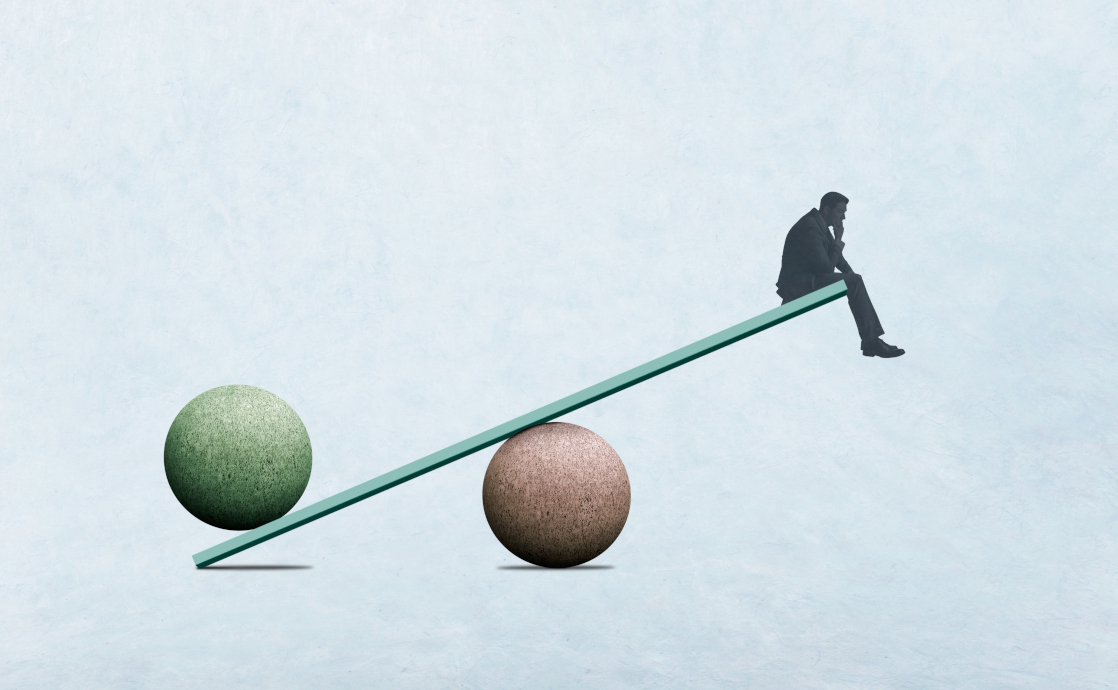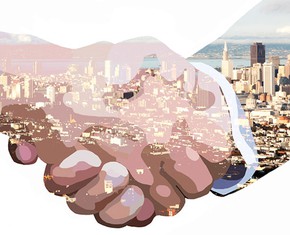The views expressed in our content reflect individual perspectives and do not represent the authoritative views of the Baha'i Faith.
Everyone knows that prejudice is a destructive force in the world, and most of us understand that overcoming and removing our entrenched narratives and prejudices takes time and effort.
Why? Well, we tend to cling to the stories, beliefs, and values we grew up with, no matter how misguided or irrational.
A few of those, like a belief in Santa Claus or the Easter bunny, we tend to grow out of – but others persist. For some strange reason, we’re able to see incorrectness in the illogical beliefs of others, but not in our own.
RELATED: Never Label Anyone
So how do we get rid of these false narratives and prejudices?
The Baha’i Faith, a global community dedicated to the eradication of prejudice from the face of the Earth, offers humanity this stirring objective:
The aim of the Baha’is is to raise aloft the banner of the world’s Great Peace, to eradicate the foundations of war and conflict throughout all regions, to gather together all the divers nations and peoples beneath the single-hued Tabernacle of God, and to eliminate prejudice — whether racial, national, religious, sectarian, or political — from the face of the earth, so that all countries may become as one country, all races as one race, and all nations as one nation. Thus may the world of creation attain unto peace and tranquillity.
We should first patiently, tactfully, and wisely attempt to identify and then eradicate these false stereotypes and biases from our thinking. Once we’ve done that personal work, we can try to bring about constructive change in the thinking of our communities and cultures.
When we understand how our prejudices came to be, the fallacy of the divisive identities we have taken on become apparent, and the distrust, fear, and exceptionalism that separate us from others fades away. We are all members of one human family, and our common identity and our purpose involves realizing our material and spiritual potential.
The more we can overcome our own prejudices and cultivate the powers of truth, love, and justice in our own lives, the greater our positive influence on others. Freely and closely associating with those who are different from us allows us to practice and develop our capacities for understanding, love, kindness, fairness, and friendship. As our understanding grows we are better able to see the errors of our cultural myths, imitative and prejudicial thinking and behaving, and help others to do the same. Our ignorance and prejudice form major barriers to growth. Our examples of self-sacrifice, selfless service and love for all people are the most powerful agents for change.
We must be careful not to imitate the narratives, thinking, and beliefs of past ages, which promoted unity only among a small group of people and viewed outsiders with suspicion or disgust. They did this through stories of their goodness and greatness, and their victories over their rivals. They may have also created a narrative of victimhood by disparaging those who opposed or oppressed them. Some of these accounts were written or told from a biased perspective to achieve a certain end, not necessarily to convey the truth in a fair and balanced way or to create unity with those outside their identity group.
We can see this problem today by comparing opposing accounts of the same incident in history or in our present day media. Notice how each side valorizes their position and demonizes the other to serve their own interests. We create stories and stereotypes that put others in a negative light and us in a positive one, believing that we are better, more deserving, and in the right – and they are inferior, less worthy, and in the wrong. We use these stories to justify our prejudices and injustices and to make us feel better about ourselves as we seek power and advantage over others.
The resulting division, estrangement, and contention only fuel an ongoing cycle of negative rivalries, false narratives, and further conflict.
In our materialistic and competitive cultures these rifts get widened along with the inequities and injustices they create in status, opportunity, and wealth. With our entrenched but mistaken view of survival of the fittest, our impulse to divide into warring tribes to advance our selfish advantage and protect ourselves from outside threats, perceived or otherwise, becomes justifiable.
The Baha’i teachings help us remember that although we are different, we each have something to contribute to the whole:
… the difference of customs, manners, habits, ideas, opinions and dispositions embellishes the world of humanity, and this is praiseworthy. This diversity, this difference is like the naturally created dissimilarity and variety of the limbs and organs of the human body, for each one contributes to the beauty, efficiency and perfection of the whole. When these different limbs and organs come under the influence of man’s sovereign soul, and the soul’s power pervades the limbs and members, veins and arteries of the body, then difference reinforces harmony, diversity strengthens love, and multiplicity is the greatest factor for co-ordination.
To effectively make those contributions, we can impartially interrogate the stories we grew up with, and fairmindedly examine the truths and beliefs we have accepted from our cultures when we were less mature. Without questioning them for ourselves, now that we have the capacity to do so, we continue to perpetuate the pain they create.
RELATED: The Role Latino People Can Play in Ending Racism
Our accounts and understanding should more closely accord with reality the more we scientifically, objectively, rationally, and reasonably study and reflect on them in consultation with others who have done the same. Though it may have been acceptable when we were children to blindly imitate and follow the beliefs and practices of those who raised and taught us, it is no longer acceptable as adults.
Who we associate with matters. If we are around ignorant, prejudiced, and self-centered people, we will be influenced by them. Likewise, if we associate with fair-minded, caring, and selfless people, we will be affected by them. If we live in environments or cultures that value the virtues of truth, compassion, and justice, it is more likely we will also value and cultivate these powers. Whoever we are and wherever we live, we can benefit by developing these capacities and encouraging them in our colleagues, communities, and societies. This process will require us to not only adopt these qualities, but also to discard the falsehoods, prejudices, and habits we can identify in ourselves.
Discover how to identify and overcome personal prejudices to create a more just and united world. This article explores how false narratives shape our biases and how the Baha’i teachings offer a path toward unity and understanding.We cannot take our cues from our confused and collapsing societies. We must rise above the despair, destruction and distress we see around us and conquer the negative narratives and forces that drive the division, degradation, and prejudice in our world.
















Comments
Sign in or create an account
Continue with Googleor